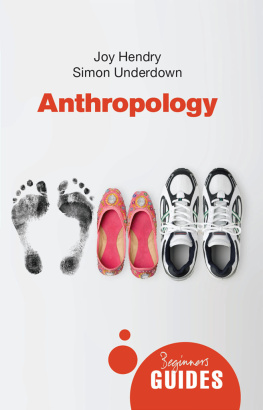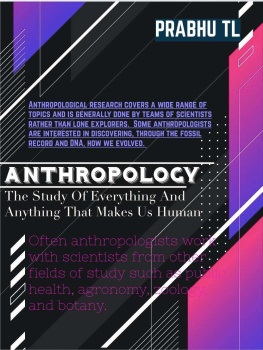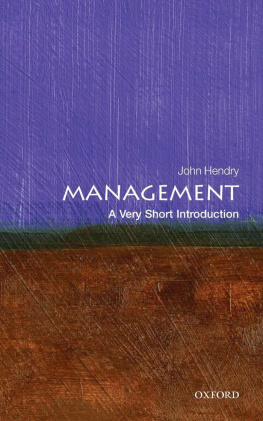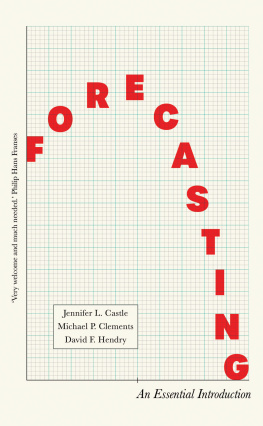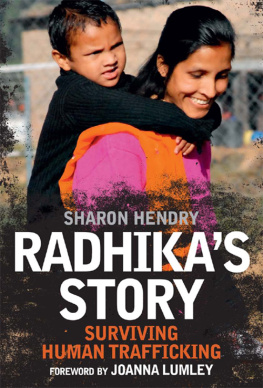Anthropology
A Beginners Guide
A superb guide, one of the very few to combine biological and social approaches.
Dr David Shankland - Director of the
Royal Anthropological Institute
An excellent place to start discovering the range and depth of anthropological enquiry.
Professor Robert A. Foley - Director of the
Leverhulme Centre for Human Evolutionary Studies,
University of Cambridge
A wonderfully accessible introduction, with a clear focus on the needs of students first coming to the field.
Dr Faye Healey-Clough - Anthropology lecturer,
Gloucestershire College, UK
ONEWORLD BEGINNERS GUIDES combine an original, inventive and engaging approach with expert analysis on subjects ranging from art and history to religion and politics, and everything in between. Innovative and affordable, books in the series are perfect for anyone curious about the way the world works and the big ideas of our time.
aesthetics
africa
anarchism
aquinas
art
artificial intelligence
the bahai faith
the beat generation
biodiversity
bioterror & biowarfare
the brain
british politics
the buddha
cancer
censorship
christianity
civil liberties
classical music
climate change
cloning
cold war
conservation
crimes against humanity
criminal psychology
critical thinking
daoism
democracy
descartes
dyslexia
energy
engineering
the enlightenment
epistemology
european union
evolution
evolutionary psychology
existentialism
fair trade
feminism
forensic science
french literature
genetics
global terrorism
hinduism
history of science
humanism
huxley
islamic philosophy
journalism
judaism
lacan
life in the universe
literary theory
machiavelli
mafia & organized crime
magic
marx
medieval philosophy
middle east
NATO
nietzsche
the northern ireland conflict
oil
opera
the palestineisraeli conflict
paul
philosophy
philosophy of mind
philosophy of religion
philosophy of science
planet earth
postmodernism
psychology
quantum physics
the quran
racism
renaissance art
shakespeare
the islamic veil
the small arms trade
the torah
sufism
volcanoes


A Oneworld Paperback Original
Published by Oneworld Publications 2012
Copyright Joy Hendry and Simon Underdown 2012
The moral right of Joy Hendry and Simon Underdown to be identified as the Authors of this work has been asserted by them in accordance with the Copyright, Designs and Patents Act 1988
All rights reserved
Copyright under Berne Convention
A CIP record for this title is available
from the British Library
ISBN 978-1-85168-930-9
ebook ISBN 978-1-78074-117-8
Typeset by Cenveo Publisher Services, Bangalore, India
Cover design by vaguelymemorable.com
Printed and bound in Great Britain by
TJ International, Padstow, Cornwall
Oneworld Publications
185 Banbury Road
Oxford OX2 7AR
England
Stay up to date with the latest books,
special offers, and exclusive content from
Oneworld with our monthly newsleter
Sign up on our website
www.oneworld-publications.com
Acknowledgements
Anthropology, the study of humankind in all its diversity, is an exciting subject that should be open and available to anyone, and we are grateful to Marsha Filion and Juliet Mabey at Oneworld for offering us the opportunity to bring our field to the wide public audience we think it deserves. We would also like to thank Fiona Slater and Ruth Deary for negotiating the practical details of its production.
This opening up of the discipline is a venture close to our hearts. As it happens, when we were invited to write this book we were already involved in a related venture, as part of the Education Committee of the Royal Anthropological Institute (RAI) in London, which was tasked with devising ways to bring anthropology to pre-university students, as well as the public at large. Our work on the book thus developed alongside the syllabus for the Advanced-level Certificate of Education in England, which reflected the hard work of chair, Brian Street, and the director of the RAI at the time, Hilary Callan. We would therefore like to thank them and our fellow committee members for their various contributions to this book, notably Marzia Balzani, Paul Basu, David Bennett, Laura Bishop, Stephanie Bunn, Barry Dufour, Luke Freeman, Judith Okely, Peggy Froerer, Bonnie Vandesteeg and Rob Webb, as well as Gemma Jones and Nafisa Fera, who were the education officers during the period, and David Shankland who succeeded Hilary Callan as Director of the RAI in 2010.
For other comments on aspects of the text at various stages of its production, we would like to thank Andrew and Leslie Carter, Chris Dunabin, Rob Foley, Martin and Sofia Gellner, Sandy Hendry, Emily Hendry, Kate Hill, William Kay, Zoe Lake Thomas, Jenny McKenna, Nancy Priston, Mary Patterson, Charles Tyson Taylor and Jemma Underdown.
Introduction
Anthropology is a twenty-first century subject with roots as old as human history. As long as people have wondered where they come from, and speculated about the behaviour of neighbours brought up differently to themselves, they have been thinking anthropologically. For several decades, we have been able to watch people from all sorts of backgrounds on television, but we also often find ourselves beside them, for instance, in school or at work. Some may have travelled from afar, but many have grown up in the same towns and cities we share. We may practise different rites and ceremonies, eat different food at home, and possibly even speak different languages. We may or may not look like one another, though we probably share a local way of speaking with those who live nearby. Yet our families and our backgrounds are intriguingly different.
It is only in the decades spanning the opening of the new millennium that it has become possible through the internet to find out instantly about people who live at opposite ends of the earth, to chase up our common features and to marvel at our continuing diversity. Independent of books and teachers, we can track ideas about our evolutionary origins through time, investigate our relationships with the environment, and, if we have the language, we can communicate freely with people whose elders parents, grandparents and so forth think quite differently from our own. In all these ways we are already beginning to be anthropologists, for this is essentially where anthropology begins.
Those of us living in this new world thus have an advantage over our elders and ancestors in the access we have to anthropological knowledge, the familiarity we may have with long-distance travel, and the products of multinational companies. However, this book will introduce some of the values that those same elders and ancestors may have for us in a kind of learning that goes beyond the internet. It will suggest ways in which you can draw on your valuable inside knowledge to do anthropology yourself, perhaps by talking to some of those elders, by sharing your own particular worlds with friends, or by hunting for curious objects you can hold in your hands, and examine for clues of former lives. It will offer hints to pushing back further through time, from investigating your family ancestry to suggestions about the biological heritage you and your friends share as human beings.
Next page
